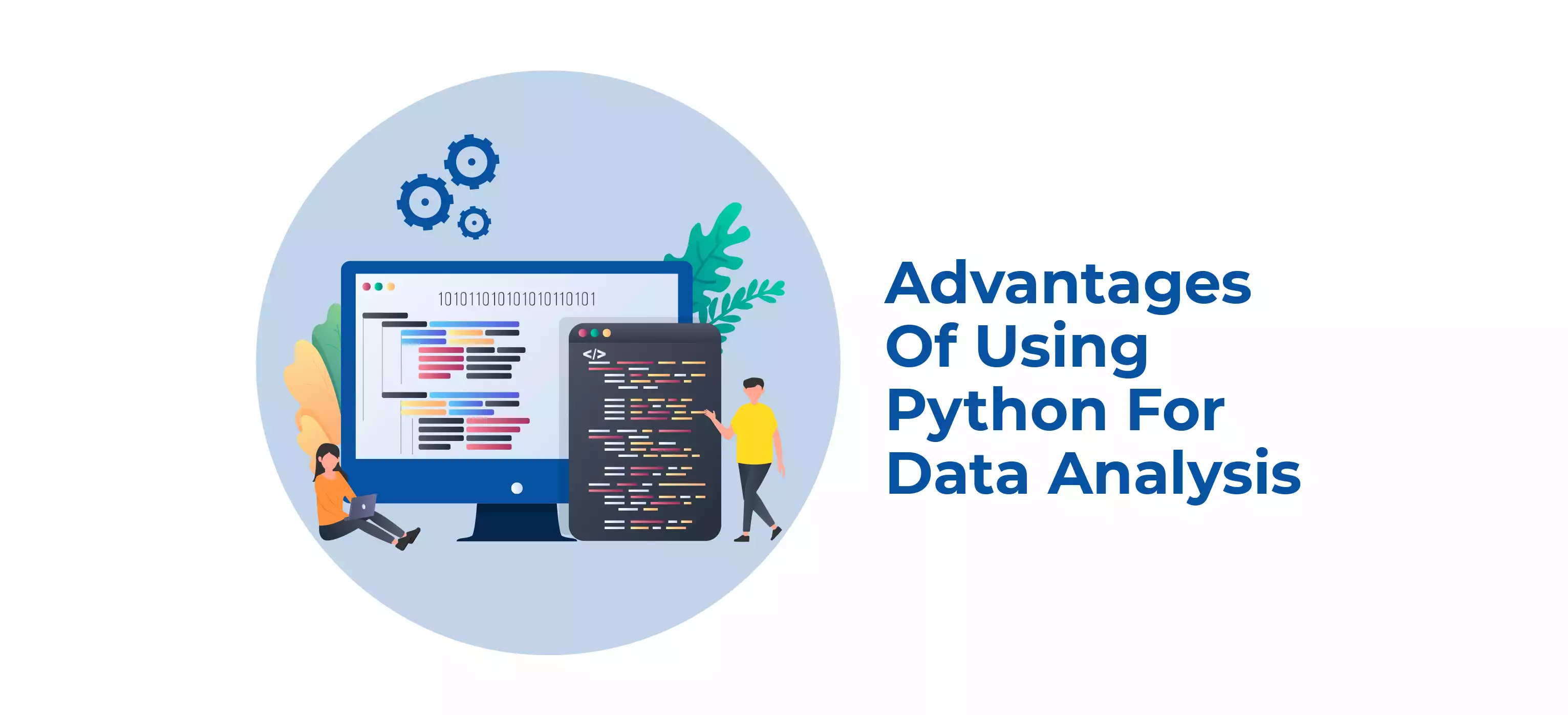 Usman Ahmad
Mar 28, 2025
Usman Ahmad
Mar 28, 2025

Python is a computer programming language that is frequently used to create websites and software, automate tasks, and analyze data. Python is a general-purpose programming language, which means it can be used to create a wide range of programs and is not specialized for any particular problem. This multi-purpose programming language is also extensively used for its adaptability and a large library that is useful for analytics and complicated calculations. With Python’s level of adaptability, it should come as no surprise that it is one of the world's programming languages with the quickest rate of growth.
Also Read: Python vs. Other Programming Languages
Data analysts, on the other hand, are in charge of interpreting data, assessing the outcomes using statistical methods, and delivering ongoing reports. Data analysts are in charge of deciphering data, applying statistical methods to the outcomes, and producing periodic reports. You might be wondering how Python and data analysis are related. Python is quite helpful, and many experts consider it to be among the greatest programs for data analysis.
For More Information: Top Data Analyst Skills
Since sifting through data is a large part of data analysts' jobs, knowing Python can help them save time and effort by automating that process. Automating routine tasks is a simple solution. Additionally, Python provides increased scalability and efficiency. Python is also used for advanced data mining and analysis techniques like machine learning and text mining, as well as for data crawling, data cleaning, data modelling, and the creation of data analysis algorithms based on real-world business challenges.
Also Check Out: Why is Python Dominant Language for Machine Learning?
Among the various software used by data analysts, including Microsoft Excel, R, Jupyter Notebook, SAS, etc, Python is proven to be the best. As such, it is the most widely used software by data analysts. Python is the first choice of a data analyst for several reasons. We will understand why Python is the greatest option for studying data analysis in this essay. here are the top 7 advantages of using Python for Data Analysis:
Programming is a key component of the interdisciplinary area of data science. Thus, a significant barrier to becoming a data scientist is a lack of programming knowledge. But Python's intrinsic simplicity and readability, which make it a language suitable for beginners, is one of its best qualities. Its crisp and clear syntax makes learning it faster than most other languages. Python gives programmers the benefit of utilizing fewer lines of code than required when using earlier languages to do tasks. Python is time-savvy because it lets you skip the lengthy documentation and jump right into the study.
You May Also Interested : Tips to Learn Python Easily
An open-source language is Python. It is always being enhanced by a fantastic open-source community. As a result, you don’t need to worry about Python being obsolete. Academics and data analysts frequently publish and share their code because of the industry's strong collaborative culture. This indicates that the community has open access to the most recent Python techniques. Python can be used on Linux and Windows platforms. Additionally, porting it to different systems is simple.
The standard language for machine learning is Python. Python is widely used by academics and researchers to build predictive and simulated models that uncover fresh information in their data. Most data formats and database connections can be handled by Python. Python machine learning training prepares learners to analyse data and learns to predict the outcome. Machine Learning with Python has become part of the technological revolution that will shape the future world. So learning it will be a future trend for sure.
Python, however, may be used for more than just data processing. Being a general-purpose language has the benefit of continuing to be useful even if you decide against pursuing a career in data science. Python's wide range of applications guarantees that you will possess a high level of software expertise.
Also Check Out : How to Perform Machine Learning in Python?
A Python library is a collection of methods and functions that enables you to carry out various tasks without starting from scratch with your code. Since they are spared the time-consuming task of building new code, data analysts can perform more effectively as a result.
The addition of libraries that expand Python's functionality has given it more depth. You can locate a library that meets your demands as a data analyst because there are so many of them. Python also makes storytelling easier with a growing variety of data visualization tools.
Also Read: Best Data Analytics Tools
Because of the 8.2 million developers who support Python, it has a robust support network. Anything that can go wrong will go wrong, and finding assistance when utilizing something you weren't required to pay for can be very difficult. As a result, an increasing number of data analysts and data scientists begin to adopt it.
You can interact with Python experts and community members in online forums. You can meet Python experts and community members on sites like Reddit and StackOverflow. You can also attend conferences, meetups, and other activities.
Even programs created in other programming languages can easily integrate Python. Thus, it makes the process of developing a website easier by enabling simple integration with other languages. Python is known as a "glue" language, which indicates that it's very helpful for interfacing with various systems and integrating different scripts, including various types of databases.
Python is ideal for you if you want to do something creative that has never been done before. This is because Python wasn't first developed to address a particular purpose and is therefore well suited for the rapid development of various types of applications and websites by developers. Python is also not driven by templates or particular APIs.
You May Also Like to Read: Python Career Opportunities
Python has shown its capability to revolutionize data analysis. It is so full of helpful tools and features that many data scientists and data analysts all around the world use it as their first pick. For rookies, specifically, Python is ideal. It has an easy-to-understand syntax. There are several materials available for learning.
Also Check Out: Benefits of using Python for Data Science

Usman Ahmad is a Data Analyst Trainer with 16 years of training experience. He specialises in programming, databases, and data analytics. Usman possesses a range of certifications including PowerBI Data Analyst Associate, Azure Data Scientist Associate, Fabrics Analytics Engineer, and Office Specialist Expert 2019 Trainer. Additionally, he also holds an M.Sc. in Computer Science.
Usman Ahmad has trained over 3,000 professionals in data analytics and technology. As the Head of the Department at the School of Computer Science and an M.Sc. thesis supervisor, he brings academic excellence and practical industry knowledge to the classroom. A Microsoft Certified Trainer, Usman integrates theoretical information with practical applications to produce effective learning outcomes.